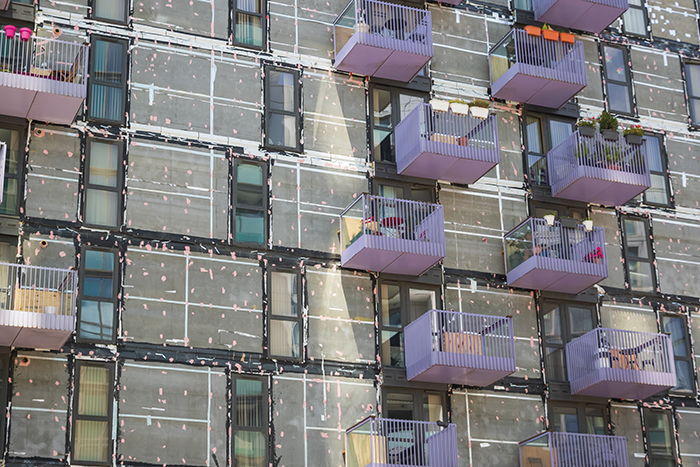
As reported earlier today as being likely to happen, housing minister Michael Gove has warned housebuilding firms that the government is ready to take action regarding the removal of dangerous cladding.
Speaking in the House of Commons, Gove said, “no leaseholder living in a building above 11m will ever face any costs for fixing dangerous cladding.
“They are blameless and it is morally wrong that they should be asked to pay for the price.”
Firms responsible for manufacturing dangerous cladding and insulation “must pay now, instead of leaseholders,” he added.
Firms that refuse to comply will be made to do so using the law, Gove said.
Additionally, the government intends to amend the Building Safety Bill to “retrospectively extend the legal right of building owners and leaseholders to demand compensation from their building’s developer for safety defects up to 30 years old. The Bill currently covers defects up to 15 years old.”
Reacting to the news, Intermediary Mortgage Lenders Association executive director Kate Davies says: “Mr Gove’s mention of ‘commercial consequences’ and the statement that leaseholders will be able to sue builders for up to 30 years, provide punchy headlines but few specific details.
“The question of enforcement is one that will loom over the sector, as taking builders to court will require time, money and courage from already-exhausted leaseholders and, if undertaken by the government, gives little relief to leaseholders in the interim.”
“The statement that the government will seek a ‘solution in law’ for slow-moving developers is promising, but also suggests further delays and a timescale that is of little reassurance to leaseholders here and now. Withdrawal of the consolidated advice note is also welcome but, again, we have questions around how long it will take the BSI to draw up the promised new proportionate guidance.”
“Even where the government provides a timeframe, this vagueness persists. Developers have been given two months to create a plan for resolving the growing cladding costs crisis but, without a sense of the time required for the government Apex taskforce to identify and contact recalcitrant developers, leaseholders have been given little more of a promise than ‘trust us and wait.’”
“Today’s news also avoids discussing the other non-cladding issues and building defects that have been uncovered whilst cladding has been reviewed across the UK.”
And Irwin Mitchell national head of residential property Jeremy Raj warns that, while “the sentiments and ambition of Mr Gove’s statement today were praiseworthy and long overdue… the realities of his proposals are, however, as yet of questionable efficacy and breadth.”
Raj continues: “The truth is that the fifth anniversary of building safety reaching its current level of crisis for leaseholders in taller blocks of flats in particular is fast approaching.
“The acknowledgement today that reaction to date has been slow and ineffective will be cold comfort, particularly in relation to those with non-cladding issues. Government must indeed accept when its own performance has not been acceptable and ensure a rapid improvement.
“The cladding on Grenfell had nothing to do with current or historic developers of new build homes, having been retro-fitted many years after the original build, using materials that were clearly dangerous that seem to have been ignored or waved through by the regulatory authorities.
“The idea that responsibility for resolving the cladding scandal – which has now widened to become a general building safety scandal – should be laid solely at the doors of developers asked to voluntarily cough up more cash, is likely to lead only to further delay and heartbreak for leaseholders caught in dangerous or un-sellable properties.”
Raj adds: “Many developers will be puzzled as to how and to what extent they can justify such expenditure on a ‘voluntary’ basis in the context of their obligations to shareholders, and a lack of direct responsibility, particularly given clear evidence of contributory negligence by others.
“Nobody wants the leaseholders caught up in the post-Grenfell nightmare to continue to suffer, and it is right that they should be absolved of financial responsibility for making their buildings safe.
“However, significant issues relating to building safety remain in addition to the cladding problems and many of our clients do not appear to be helped by today’s announcement in resolving the problems with the homes they bought in good faith, expecting them to be safe to live in and easy to sell on.”



